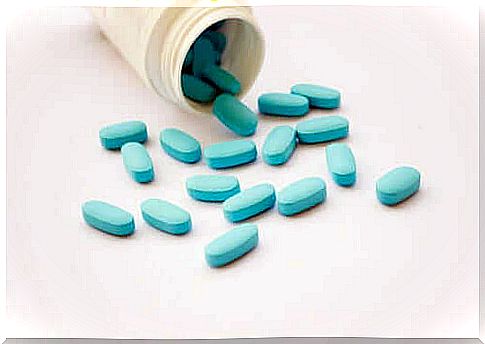Aripiprazole: Antipsychotic With Few Adverse Effects

Aripiprazole, also known as Abilify, is an atypical antipsychotic. It is an effective and well tolerated drug, prescribed to patients with schizophrenia, bipolar disorder and manic episodes.
In Europe, it was approved for the treatment of schizophrenia in 2004. Subsequently, in 2008, the European Medicines Agency (EMA) also authorized its use in bipolar disorder, particularly type I.
It is a drug with special characteristics. Some advantages of aripiprazole over other antipsychotics are:
- Less frequent sedation.
- It does not alter cognitive functions.
- Lower incidence of side effects.
- It can be given as an intramuscular injection.
- Greater adherence to treatment.
For all these reasons, it is a widely used medicine nowadays.

In which cases is it indicated?
Aripiprazole is indicated for the treatment of:
- Schizophrenia in adults and adolescents over 15 years of age.
- Manic episodes in patients with bipolar disorder over 13 years of age.
Administered orally, it is effective in the treatment of patients with schizophrenia and bipolar disorder. Its effectiveness has also been demonstrated in the treatment of manic episodes.
It is effective both in the acute and in the maintenance phase. It has also been shown to be effective in preventing relapses. Aripiprazole acts on the positive and negative symptoms of schizophrenia:
- Positive symptoms: hallucinations, agitation, behavioral disturbances, etc.
- Negative symptoms: flattening, apathy, depression, lack of interest, etc.
An important novelty of this drug concerns its different methods of administration, useful in different situations; precisely for this reason it represents a valid alternative for many patients.
Intramuscular administration, for example, is used to control agitation. The extended-release injectable form has had positive results in delaying relapses. This mode of administration improves adherence to treatment.
It is not necessary to take the drug by mouth every day, a monthly injection is enough. It is also given together with other drugs to treat depression (particularly resistant major depressive disorder). Adding aripiprazole in small doses enhances the effect of the antidepressant drug.
Some studies state that aripiprazole could also be useful in treating other ailments. For example, in Alzheimer’s disease. It appears to improve cognitive and psychotic symptoms.
It could also be useful against Parkinson’s disease, a disorder in which psychosis is unfortunately very common. Some studies report improvements after taking the drug. However, further research is needed.
Mechanism of action of aripiprazole
Aripiprazole is an atypical antipsychotic, meaning it has a different mechanism of action than other antipsychotic drugs. Most of these medicines are dopamine antagonists. Conversely, aripiprazole exerts a partial agonist action on dopamine D2 receptors.
The increase in dopamine neurotransmission therefore increases its concentration in the brain. And this has a beneficial effect on the positive and negative symptoms of schizophrenia.
It also exhibits a partial agonist effect on 5HT1A serotonin. This action is associated with greater effectiveness against:
- Depressive symptoms.
- Anxiety.
- Cognitive symptoms.
- Negative symptoms.
Furthermore, aripiprazole exerts a potent antagonism on the 5HT2A, 5HT2B and 5HT6 serotonin receptors. However, it has minimal action on other types of receptors.

Side effects
The most frequent adverse reactions in aripiprazole treatment are:
- Diabetes mellitus.
- Insomnia.
- Anxiety.
- Restlessness.
- Akathisia (psychomotor agitation).
- extrapyramidal syndrome
- tremor
- headache
- sedation
- drowsiness
- dizziness
- fatigue
- nausea, vomiting, etc.
However, the incidence of adverse effects of this drug remains very low especially if we compare it with other antipsychotics in its group. It remains a well tolerated and safe drug and supported by several scientific studies.
Aripiprazole treatment is also associated with relative weight gain and minimal alteration of metabolic parameters. Likewise, there is a low risk of extrapyramidal symptoms and metabolic syndrome.
Even if the side effects seem minimal and uncommon, we must not forget them. It is important to adjust the doses well as adverse effects are more frequent when doses are increased. In fact, you should start with low doses and gradually increase them.









